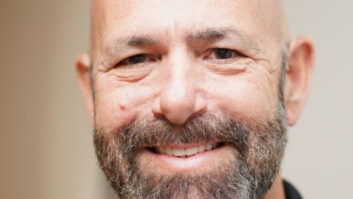Arlington, Va. – Six industry
associations, including the Consumer Electronics Association (CEA) and the
cellular industry trade group, sent a letter to Congress opposing a proposal by
the National Association of Broadcasters (
) to mandate the inclusion of
FM radio tuners in mobile devices.
The
proposal arose amid Congressional deliberations, driven by the music industry,
to require terrestrial AM and FM broadcasters to start paying royalties to
artists and music companies, not just to songwriters, as satellite and Internet
radio stations do. The broadcast industry, which has long opposed paying the
additional royalties, hopes its compromise will head off potentially higher
rates that Congress might enact and encourage the music industry to sign on in
return for potential access to more listeners. The NAB is also positioning the
proposal as a public-safety measure.
The
Coalition,
which is leading the lobbying effort to enact the new royalties, said the
proposal has the “potential to be a significant breakthrough.”
In their
letter to the chairmen and ranking members of the U.S. House and Senate
Judiciary Committees, the six groups urged Congress to “resist efforts to
include an FM technology mandate for mobile devices in any legislation
addressing an unrelated conflict between the broadcast and recording industries
over royalties.”
Calls for
an FM chip mandate, the letter said, “are not about public safety but are
instead about propping up a business which consumers are abandoning as they
avail themselves of new, more consumer-friendly options.” The letter called it
“is simply wrong for two entrenched industries to resolve their differences by
agreeing to burden a third industry — which has no relationship to or other
interest in the performance royalty dispute — with a costly, ill-considered
and unnecessary new mandate.”
The other
four groups joining
and
, which represents
the cellular industry, are the Information Technology Industry Council, the
Rural Cellular Association, TechAmerica and the Telecommunications Industry
Association. The six groups represents device manufacturers, wireless carriers
and chip makers.
In the letter , the groups contend that the FM chip mandate:
- would raise
the cost of producing wireless devices and force consumers to pay more for a
feature they may not want or ever use. If consumers wanted FM radio in their
cellphones, the feature would be available in a more than the handful of
cellphones that currently offer them;
-
will
require additional chip and antenna space that might “foreclose opportunities
to include other functionality that may be more highly valued by consumers and
harm competition among device makers by limiting opportunities for
differentiation”;
-
and isn’t
needed to improve public safety because, under the federal Warning, Alert, and
Response Network (WARN) Act, the wireless industry is already working with government
agencies “to develop a mobile broadcast emergency alerting system compatible
with present and future wireless air interfaces that will allow for the
targeted real-time delivery of government-approved alerts.”
WARN
technology “will soon be a reality,” the letter contended. An FM chip mandate
was already rejected by Congress during its WARN Act deliberations, the letter
writers noted.
The
associations also contended that the existence of an FM chip in a mobile device
“does not guarantee that a consumer would be tuned to a station broadcasting an
announcement about an impending danger.” In contrast, the WARN Act system “will
provide immediate notification of government-approved alerts,” the letter stated.
A bill without
the mandate has already been approved by committees in the House and Senate.
Select
cellphones already come with included FM radio, as does the ZuneHD MP3/video
player with embedded FM HD Radio.













